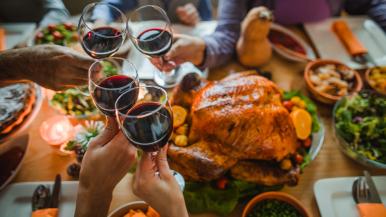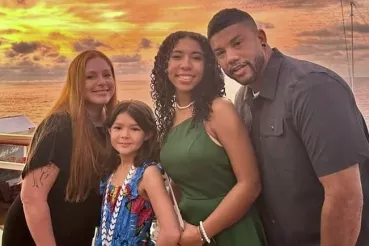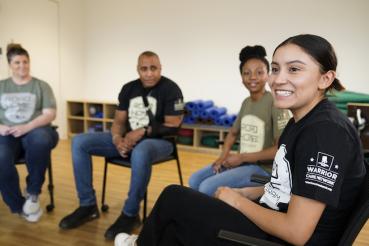Holiday get-togethers have long been a source of stress, thanks to differing opinions or longstanding conflicts.
To help navigate some tricky situations that may come up this holiday season, we turned to Abigail Hardin, PhD, a psychologist and assistant professor at Rush University Medical Center.
If you want to set boundaries for your holiday gathering
“It’s important to communicate your expectations and needs about holiday get-togethers in a way that’s respectful but still sets boundaries,” Hardin says.
Boundaries are not an ultimatum for someone else. Instead, they are rules that you commit to for yourself in certain situations or with certain people, Hardin says.
She suggests offering a clear reason why you’re setting a boundary for your holiday meal.
Using phrases like “I want,” “I need” or “I feel” helps people hear you more effectively than saying “you need to” or “I expect that you” do something, she adds.
In general, Hardin emphasizes being extra gentle and compassionate with family members, as the holidays can be stressful for everyone. “We should all give each other a little bit of grace,” she says.
If a conversation with a relative takes a turn for the worse
“When you find yourself in a tense conversation, it’s important to find common ground,” Hardin says. This means recognizing any emotions, such as fear or anxiety, that you both share.
For example, if a family member expresses frustration about a personal topic, you could acknowledge their feelings while respectfully sharing your perspective. You might say, “I understand how you feel about that — it’s been a challenging time for a lot of us. Let’s focus on enjoying this time together today.”
If you want to keep dinner conversation light and positive
Hardin suggests setting ground rules as soon as people arrive. For some, that may mean avoiding topics like politics, family conflicts or other charged subjects.
If you need to remind guests about your rules, be calm and empathetic but firm. You could say, “I want everyone to be relaxed this Thanksgiving, so let’s steer clear of controversial topics today."
“Once people hear that two or three times, they get that you’re not playing around,” Hardin says.
If you are a guest and you become uncomfortable
Sometimes unexpected situations can arise, like an unfamiliar or tense environment. To prepare for this, Hardin suggests setting a boundary for yourself in advance. For instance, you might decide, “If I start to feel uncomfortable, I’ll take a break or head home.” By doing so, “you’re respecting yourself and your own boundaries,” Hardin says. “You’re not trying to force other people to change their behaviors, because that’s a losing prospect.”
With thoughtful communication and a willingness to extend grace to yourself and others, navigating tense family gatherings can become a little easier, helping you focus on what matters most during the holidays.





